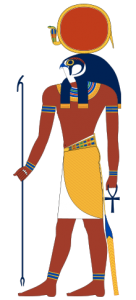Believing the in the inspiration and veracity of the inspired Scriptures does not mean that we suppress reason or scientific discovery. All truth is God’s truth. With that said, I’m not a scientist. I have a layman’s understanding of physics and evolutionary theory. I am a student of the Sacred Scriptures.
First, let’s consider this statement: “I don’t believe that the early Genesis stories are to be taken literally.” Well, the truth is that there are many faithful biblical scholars who will agree with this. The early chapters of Genesis should not be read as empirical science or history. These narratives are a collection of ancient stories that were originally passed from generation to generation through oral tradition. Eventually someone, probably Moses, collected these stories and inscribed them under the inspiration of the Holy Spirit. I am not suggesting that these stories are ahistorical myths. I am suggesting that their primary purpose is theology. Alright, take a deep breath. Relax.
The creation narrative of Genesis 1 was not meant to be read from a modern historical or scientific perspective. Genesis 1 is theology. Specifically, the creation narrative is a polemic against polytheism. In other words Genesis 1 is an ancient message that challenged the prevailing world view of the Ancient Near East. The mythology of the ancient world included various pantheons of deities who were ontologically connected to the created world and resembled the creatures of the world. For example, the chief deity of ancient Egypt was Atum-Ra, the sun god. 
Atum-Ra is often depicted with a human body with the head of a falcon crowned by the sun. He emerged from a primordial swamp. He is the father of many other Egyptian deities who were created from his mucus (a divine sneeze) or semen (divine masturbation). The various ancient cultures had similar mythologies.
“In the beginning God created the heavens and the earth” (Genesis 1:1).
With this simple statement an ancient theologian dared to challenge the prevailing mythological worldview. This simple statement declared that God the Creator is not ontologically dependent upon creation; rather creation depends upon God. God is transcendent, that is, God is above and apart from creation. The ancient creation myths describe chaos; whereas, the Genesis story depicts order. Then God said, “Let there be light” (Genesis 1:3) and “Let there be lights…” (Genesis 1:14). In other words, the ancient Hebrew theologian was proclaiming that the sun was not the divine Atum-Ra, but merely a physical object created by God. The “great sea monsters” (Genesis 1:21) and the “beasts of the earth” (Genesis 1:24) are not divine beings, but merely creatures of the Creator. The creation narrative of Genesis 1 is anti-myth that proclaims there is one God who is Creator of all things. How does this ancient theological narrative apply to our scientific world? Science may help discover the how of creation. The inspired Scriptures proclaim the Who of creation.
Also, the historicity of the flood narrative has been questioned. Any serious student of Scripture knows that the question of a local flood or a universal flood has been discussed for centuries. I find it amazing that almost all ancient cultures have a flood story, which suggests a common source and a common event. All of the early Genesis stories have their source in real history, but seek answers that neither historical or scientific investigation can provide. Creation may point to God (Romans 1:20), but God can only be known through faith.
By faith we understand that the worlds were prepared by the word of God, so that what is seen was not made out of things which are visible… he who comes to God must believe that God is and that God is a rewarder of those who seek Him (Hebrews 11:3, 6).
